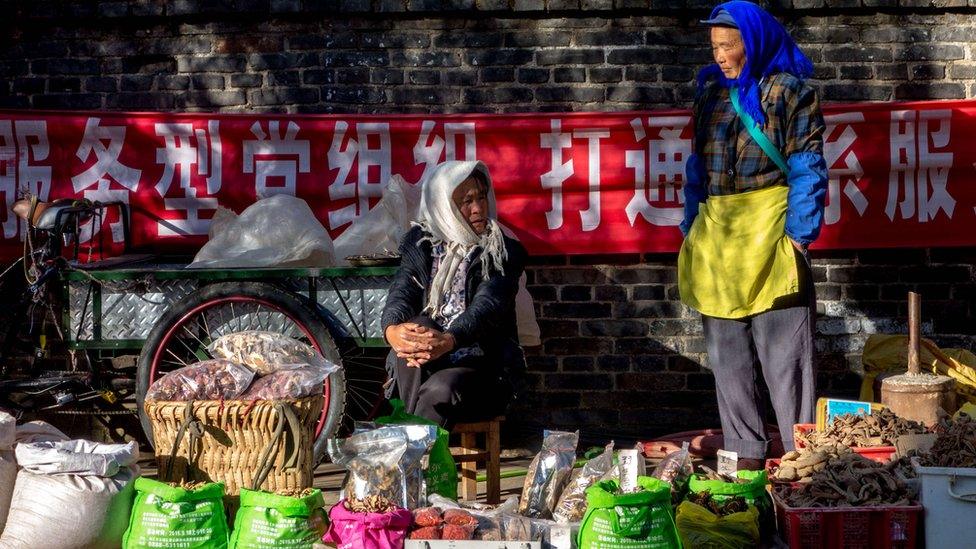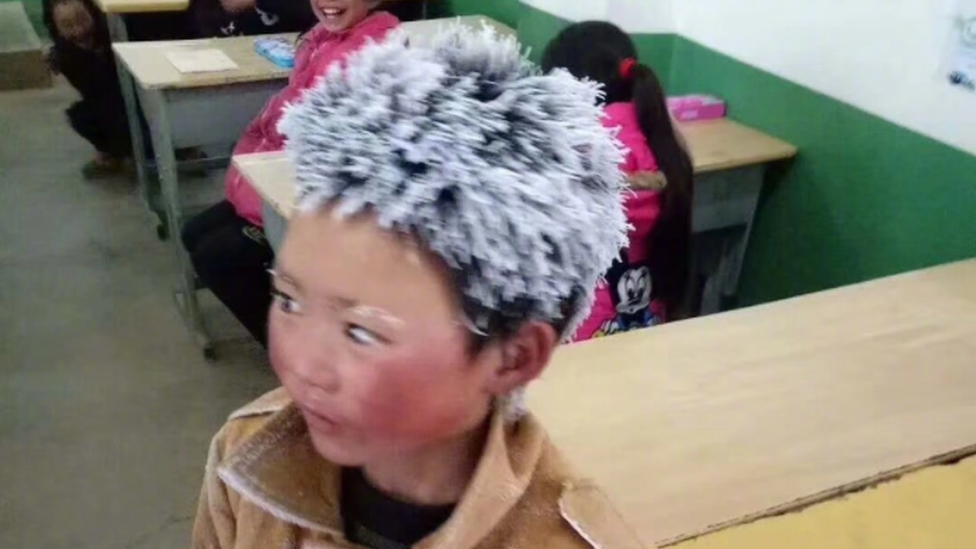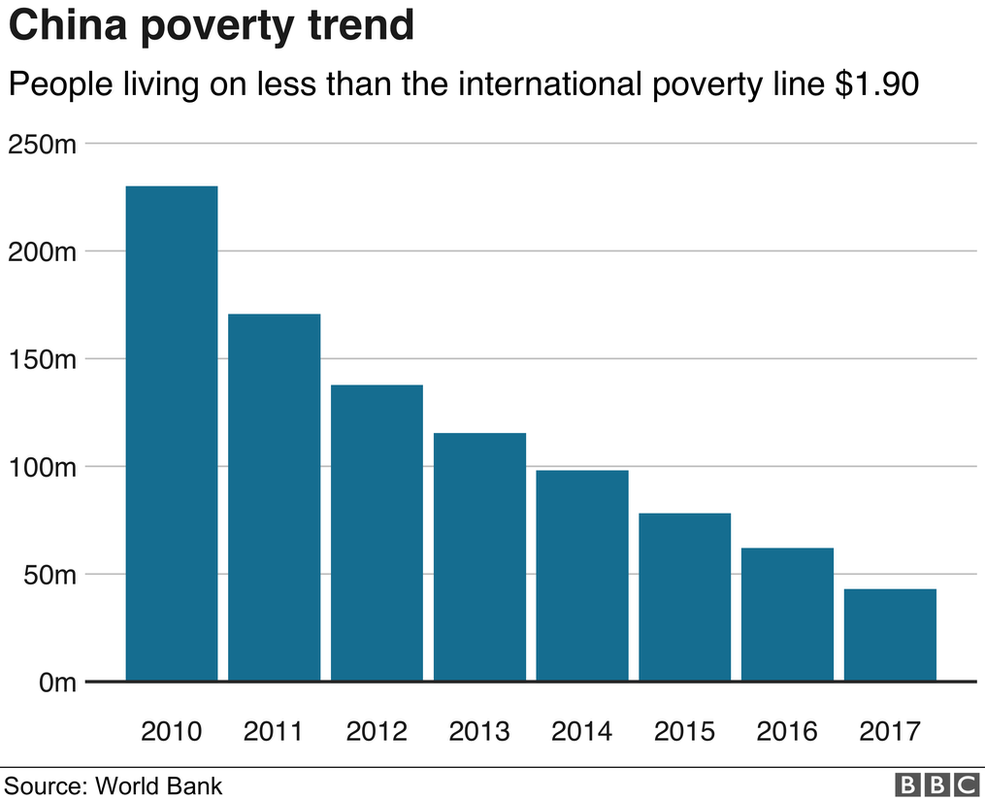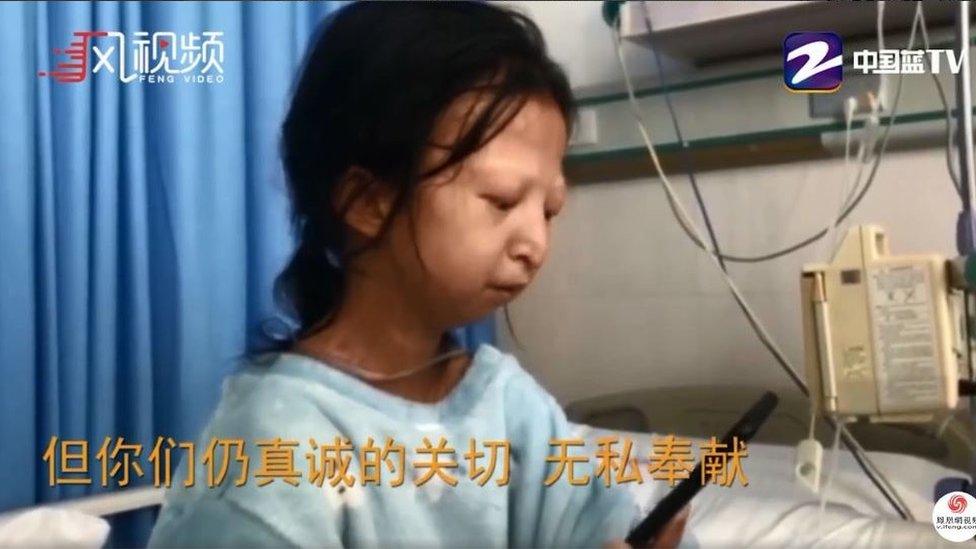Chinese province: Just 17 of our 80m people now live in poverty
- Published

China has said it hopes to eradicate poverty in 2020
A Chinese province has said just 17 people, out of its population of more than 80 million, are living in poverty.
Jiangsu province said only a handful of people lived below its benchmark of 6,000 yuan a year ($863; £660) following a successful state campaign.
But the figures were questioned online, with one person asking: "I don't believe it. Are there no unemployed people in the province? No beggars?"
Eliminating poverty is one of the Chinese government's major ambitions.
South-eastern Jiangsu is one of the country's wealthiest provinces, second only in economic output to Guangdong.
Its latest data from the end of 2019 shows that in the past four years, 2.54 million people have been lifted out of poverty, as defined by the province.
It ties in with the province's declared target of essentially eradicating poverty by 2020.
The 17 still living below the poverty standard are all capable of working, according to authorities who spoke to Chinese media, external, although four "have diseases".
Despite a slowdown, China's economy is still growing at around 6% a year.
But even with the country getting much richer, the apparent staggering success of Jiangsu's anti-poverty campaign has been queried online.
"How could they be so accurate?" was a typical comment on Weibo, China's social media platform.
Do people in China's rural communities think poverty reduction can work?
While China's economy has skyrocketed in recent decades, poverty has not disappeared - and inequality has grown.
Stories about individual cases of extreme poverty continue to shock the country.
In 2019, well-wishers donated almost a million yuan to a Chinese student in a south-western province who was taken to hospital after living on 2 yuan ($0.30, £0.20) a day for five years.
The story echoed that of a young boy who in 2018 arrived at school with his hair full of frozen ice.
Dubbed "Little Wang", his story also went viral, leading to international donations from people impressed by his resilience, and shocked at his poverty.

Pictures of eight-year-old Little Wang were shared tens of thousands of times
There's no one standard definition of poverty across all of China, as it differs from province to province.
One widely-quoted national standard is 2,300 yuan ($331; £253) net income a year. Under that standard, there were around 30 million people living in poverty across the whole of China in 2017.
But many provinces have raised their poverty benchmark - as in the case of Jiangsu, where it is at 6,000 yuan.
The 6,000 yuan figure breaks down to around $2.40 a day - which is above the World Bank's international poverty line of $1.90., external
Since opening up to the global economy in the 1990s, China has seen its poverty rates tumble, and the government hopes to eradicate extreme poverty in 2020.
According to the country's National Bureau of Statistics, the average disposable income in 2018 was 28,228 yuan ($4,059; £3,106) per person.
That breaks down to 39,251 yuan in urban and 14,617 yuan in rural households.
China has moved from being "moderately unequal in 1990 to being one of the world's most unequal countries," according to a 2018 report, external by the International Monetary Fund.


- Published1 October 2019

- Published1 November 2019
